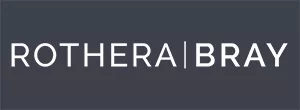- within Family and Matrimonial topic(s)
- with readers working within the Law Firm industries
- within Law Department Performance, Media, Telecoms, IT, Entertainment and Intellectual Property topic(s)
- with Senior Company Executives, HR and Finance and Tax Executives
- in United States
As a family lawyer I come across all sorts of situations in family court cases, but one that is becoming more common is covert (secret) recordings of children or the other parent. It's a difficult issue. One party might feel compelled to record, to substantiate their claims and stop false accusations. However, covert recordings have generally been frowned upon by the courts.
In May 2025, the Family Justice Council released new guidance to help families, lawyers, and judges navigate this complex issue. Here's what you need to know about the risks, legal issues and how courts view this kind of evidence.
What are covert recordings?
Covert recordings are audio or video recordings made without the other person knowing. In family law, these often involve:
- recording handovers between parents
- secretly filming children to show their reactions
- recording professionals like social workers or therapists
With smartphones and home devices, it's easier than ever to make these recordings, but that doesn't mean it's always a good idea.
Working in family law, I've faced situations where a client has covertly recorded a child handover, perhaps to show the child's reluctance to go or to show that they receive verbal abuse from the other parent.
These scenarios raise complex legal and ethical questions. As solicitors we must carefully advise clients on the implications. Meanwhile, the court must decide whether such recordings are admissible and appropriate as evidence.
What does the guidance say?
The Family Justice Council's guidance makes one thing clear: the welfare of the child comes first. While some recordings may help clarify a situation, many do more harm than good.
Key points from the guidance:
- not automatically allowed: the courts will carefully consider whether they should be used
- privacy concerns: secret recordings can breach a child's right to privacy and may even break data protection laws
- emotional harm: children may feel unsafe or manipulated if they find out they've been recorded
- legal consequences: you could face civil or criminal action if the recording is considered harassment or unlawful
How courts decide whether to use a recording
Judges will ask:
- was the recording made legally?
- is it relevant to the case?
- does it help or harm the child's wellbeing?
- was it edited or taken out of context?
If you want to use a recording, you'll need to explain why it was made, how it was obtained, and what it shows. Courts may also ask for transcripts and consider whether the recording affects trust between parties.
Recording court hearings
Let's be absolutely clear: you must not record court hearings, whether in person or remote. Doing so is a serious offence and can lead to contempt of court or criminal proceedings. This includes:
- audio or video recordings of hearings
- screenshots or screen recordings during remote hearings
If you're unsure, ask your solicitor. But the rule is simple: don't record any part of a hearing.
Recording children
The guidance is particularly strong on this point: covertly recording children is rarely in their best interests. It can:
- damage their emotional wellbeing
- undermine their trust in parents
- make them feel caught in the middle of a conflict
Even if your intentions are good, the court may see the act of recording as harmful in itself.
Recording professionals
Some parents record professionals like social workers to prove bias or misconduct. While this can sometimes reveal important issues, it can also:
- erode trust between families and professionals
- lead to professionals being more guarded
- distract from the main issues in the case
The guidance encourages agencies to develop clear policies on recording, ideally promoting open and transparent communication rather than secret surveillance.
Recording the other parent
It's common for one parent to believe a recording will prove a point, like showing verbal abuse or reluctance during handovers. But courts will look at:
- what happened before and after the recording
- whether repeated recordings suggest harassment
- the impact on the child and the other parent
If the court sees a pattern of surveillance, it could harm the recording parent's case, not help it.
How courts handle recordings
Recordings are usually treated as hearsay evidence, meaning they're not direct testimony. Courts will assess:
- how the recording was made
- whether it's reliable and complete
- its impact on everyone involved
Just presenting a recording isn't enough, it must be considered early in the case and handled properly.
Covert recordings might seem like a quick way to prove your point, but they come with serious risks. Always ask:
- will the Judge allow it to be used in a case?
- is this in my child's best interests?
- will this help or hurt my case?
Speak to a solicitor before making or using any recordings. The court's priority is always the child's welfare, and your actions should reflect that.
The content of this article is intended to provide a general guide to the subject matter. Specialist advice should be sought about your specific circumstances.


